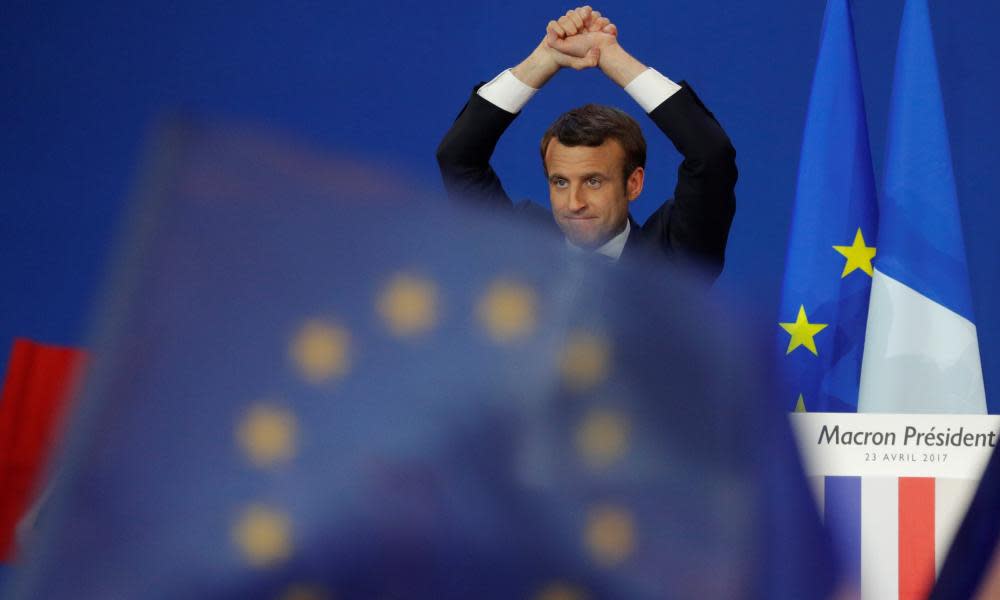French presidential favourite Macron may drive hard bargain in Brexit talks

The current favourite to become president in the French election could spell bad news for the UK government in talks on Brexit should he win.
If Emmanuel Macron succeeds in the second round on 7 May, which he is currently favourite to do, he is likely to drive a hard bargain in Brexit negotiations.
The former economy minister, who resigned to campaign for change, has been an outspoken critic of the UK’s decision to leave the UK.
In his election manifesto he described Brexit as a “crime” that will leave the UK facing “servitude”.
The independent centrist favours a hard Brexit that would leave the UK outside of the single market, and has stressed the importance of “defending the integrity” of the EU’s intertwined freedoms of movement and trade.
Negotiations would undoubtedly be tougher with a President Macron at the table, as he has already warned that there can be no “caveat or waiver” to the EU’s “unbreakable” position of defending its own interests first.
In an interview shortly after announcing his candidacy, he said that British voters’ choice to leave the 28-nation EU must be respected, but that the UK should not be given special treatment.
“I am attached to a strict approach to Brexit: I respect the British vote but the worst thing would be a sort of weak EU vis-a-vis the British,” Macron said in the interview with Bloomberg.
“I don’t want a tailormade approach where the British have the best of two worlds. That will be too big an incentive for others to leave and kill the European idea, which is based on shared responsibilities.”
On his pre-election visit to the UK to meet Theresa May in February, he ruffled feathers with his unambiguous views. Standing outside 10 Downing Street, he said he wanted “banks, talents, researchers, academics” to move across the Channel after Britain leaves the EU – and that his initiatives would include “a series of initiatives to get talented people in research and lots of fields working here to come to France”.
Later at the briefing at Westminster’s Central Hall, Macron quipped: “The best trade agreement for Britain ... is called membership of the EU”.
He also suggested that the UK would have to settle for a Canadian-style deal, an outcome that would radically reduce the UK’s market access.

 Yahoo News
Yahoo News 
